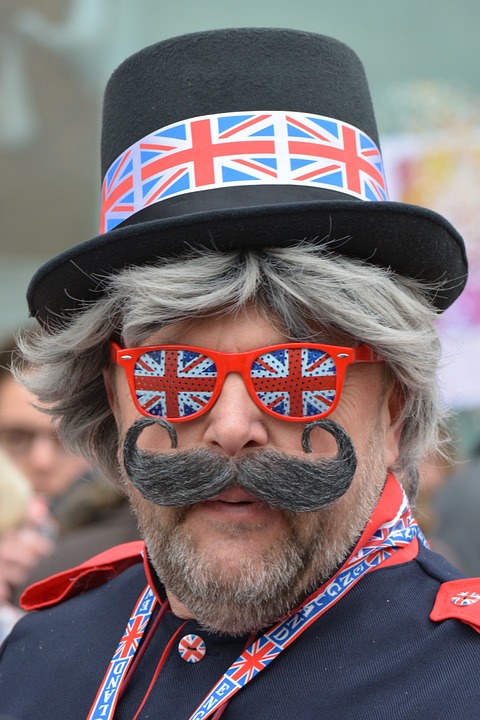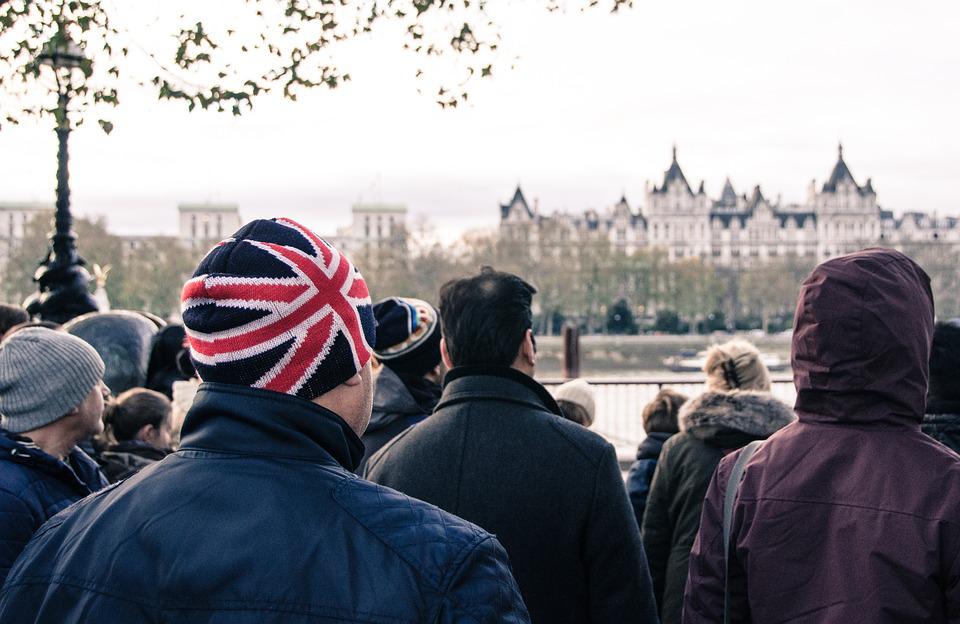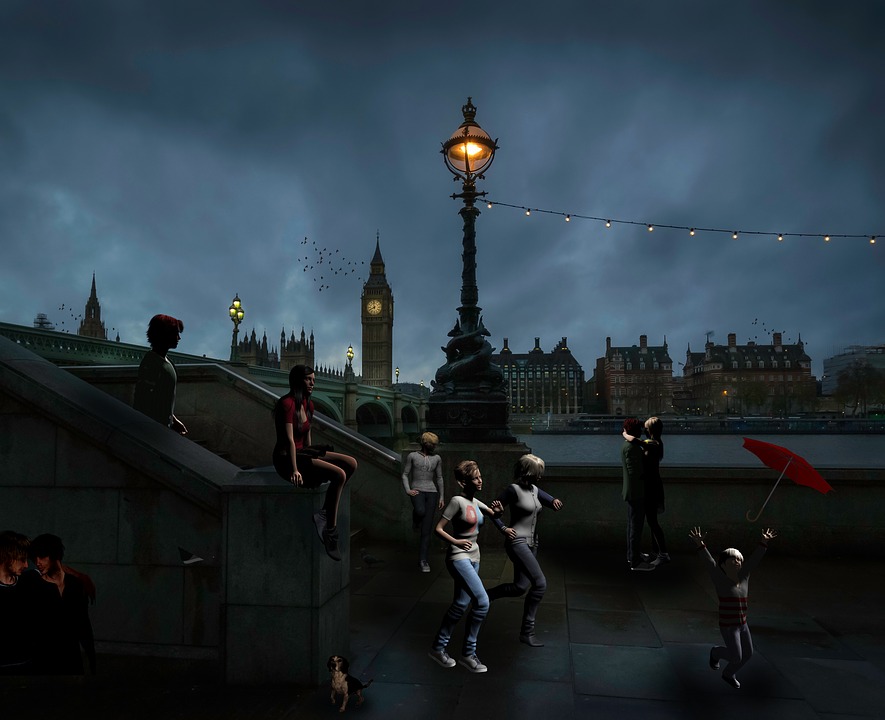A huge majority of people agree that the British are polite and punctual. However, it is also believed that many are a little “special”; they drive on the left, have their own currency, and a very particular sense of humour…
 Javier Duque
Javier Duque
There was a time when the British Empire dominated most of the world, especially between 1870 and 1920. It possessed a population of some 458 million people and some 31,700,000 km², which meant roughly a quarter of the world’s population with a fifth of the terrestrial surface.
With this data, it is clear why some British people felt like “kings of the world”. However, history has put colonising powers back in their place and returned them to their corresponding territory.
These days, the United Kingdom has been reduced to an island of some 61 million inhabitants and comprises approximately 244,000 km². But this does not change the fact that many of its inhabitants still feel “different”, “special” or even “better”.
At least this is what citizens of the rest of the world think and they justify it with proof, like the fact that they drive on the opposite side of the road, they have a different currency, they use different measures of weight….
Some of the differences between the United Kingdom and the rest of the world are reflected in the following:
Driving
Any foreigner who arrives in the United Kingdom can check the pavement below informing them which way to look –“Look right” or “Look left” – when they wish to cross the road.
This is because in England they drive on the left, as well as roughly 35% of people around the world – the majority of whom belonged to the British Empire. This means that the driver’s seat is on the right-hand side of the car.
Several theories exist on the reason behind this custom, for example the one where Pope Boniface VIII ordered pilgrims heading for Rome to walk on the left-hand side of the road.
Although the strongest hypothesis is the one dating back to the beginning of development of trade, and transport of the first products. Horse carriages drove on the left because drivers used their right hand for the whip and their left for the reins.
In doing this, they avoided whipping the pedestrians who walked on the side of the road when they whipped the horse.
It has also been said that after the Napoleon conquests, traffic was ordered to circulate on the right-hand side and this was extended to all dominions. England, however, who had not been conquered by the French emperor, continued to circulate traffic on the left and does so, even today.
 Currency
Currency
Although the United Kingdom forms part of the European Union, the fact that it keeps its own currency cannot be that it simply wants to be treated differently by other countries. This is instead a response to more complex economic issues.
Taking into account the current worldwide situation in which countries who adopted the Euro like Greece, Portugal, Spain and Italy are sinking, the English do not find themselves in such a bad situation with the Pound. Britain believes that adopting the Euro would mean losing their autonomy to establish their own interest rates.
In any case, integration with the European currency appears even more difficult – almost impossible – with the current Prime Minister, David Cameron, who has said they will not change to the Euro while he remains in power.
Besides which, the Pound Sterling is a sign of British identity created in 1560 by Elizabeth I, then Queen, in which monarchy and tradition were tied and now form a strong bond.
Humour
Humour – a way to present, execute or comment on reality, highlighting the comical side, the lighter side or ridiculousness of things – is a very broad word.
It would rarely occur to anyone to try and describe the humour used in different situations and with different people. Well, perhaps they could easily categorise the designated “green humour”, which uses profane and vulgar vocabulary, and “black humour”, whose subject is normally death and painful situations.
 However, the United Kingdom has raised its humour to a first class level. English humour is traditionally based on irony.
However, the United Kingdom has raised its humour to a first class level. English humour is traditionally based on irony.
It is considered an intelligent humour, elegant, quick, and respectful…although at the same time prickly. It can even have several interpretations and is capable of making you laugh and making you think. Other times, it can hurt.
Somebody might be offended by this humour but that being the case, it will be done using a few subtle words which can be said without that person even realising that they are being “attacked”.
Some masters of English humour have been Tom Sharpe, Alan Bennett, Nick Hornby and Julian Barnes.
The truth is that it is not an easy humour to ‘get’, or at least, understand by everyone, because it is often highly subtle. However, the implicit message is far from subtle.
Footwear
Clothing sizes and also in this case footwear sizes, are also different. On many labels of shoes and slippers, the corresponding size in China, the United States, Europe and also the United Kingdom is shown.
People might ask these other sizes do not appear on shoes in the United Kingdom, when they do in other countries. The difference is that they are generally places with a much higher demand due to their population, especially China.
Nevertheless, in the English case, it goes back to the leadership of the Crown. In this case, King Eduard II, who in 1324 determined the measurement of shoes.
 He worked out that three grains of barley together constituted one inch (2,54 cm) and that 12 inches were a foot (30,48 cm). Therefore, shoemakers took the unit of footwear as one grain of barley.
He worked out that three grains of barley together constituted one inch (2,54 cm) and that 12 inches were a foot (30,48 cm). Therefore, shoemakers took the unit of footwear as one grain of barley.
Even so, the unit of barley resulted too big and the use of half numbers (1, 1½, 2, 2½…) was introduced and remains to this day.
Other measurements
Amongst other particular English measurements, there exists, for example, the mile. It comes from the Roman mile which equalled one thousand steps (1 step=5 feet), so a mile was 5,000 feet.
The English, before trying to establish the mile, used the furlong as a measurement and when making their equivalent, they were given an uneven number so they modified the length of the mile: the Roman mile is 5,000 feet and the English mile is 5,280 feet.
Another example is the pint measurement, a unit of volume in the imperial system and used widely by the English, especially when ordering a beer. A pint equals 568.26125 ml.
One last difference is that of weight. Instead of using the kilogram – the basic unit of mass in the International System of Units – they use the pound, which equals 453.59237 grams.
All of this shows that, indeed, the English do seem on occasions to be a little contrary to the rest of the world. But many of their “peculiarities” come from times gone by and form part of their history. Nobody can force them to change, or much less, put them down for wanting to be “different” or “special”.
(Translated by Susan Seccombe – Email: ess.translations [@] gmail.com) – Photos: Pixabay












.jpg)












